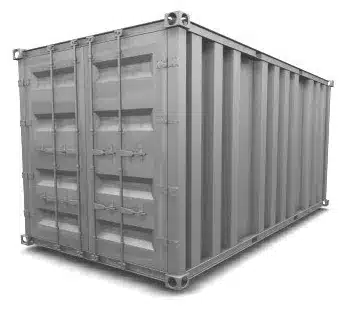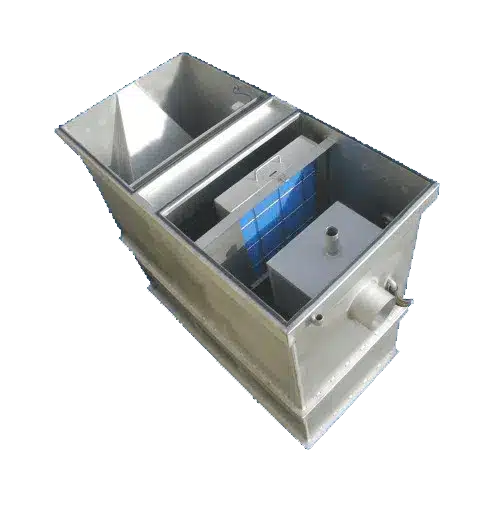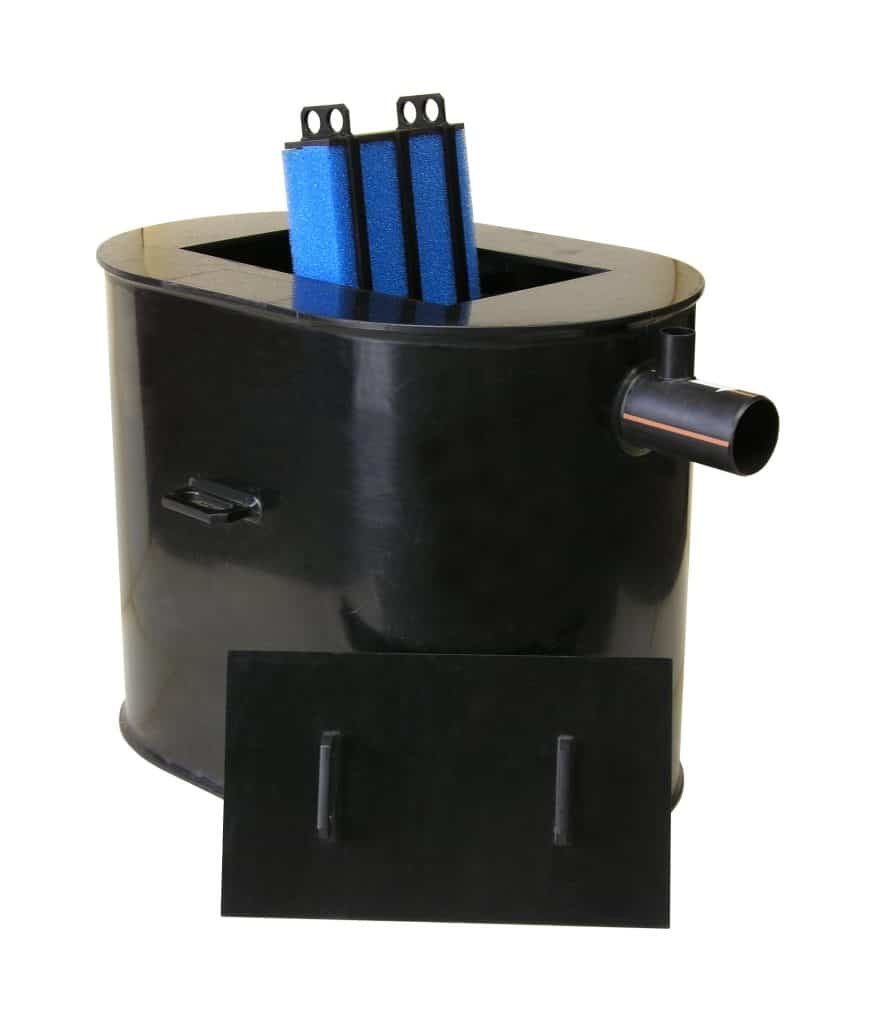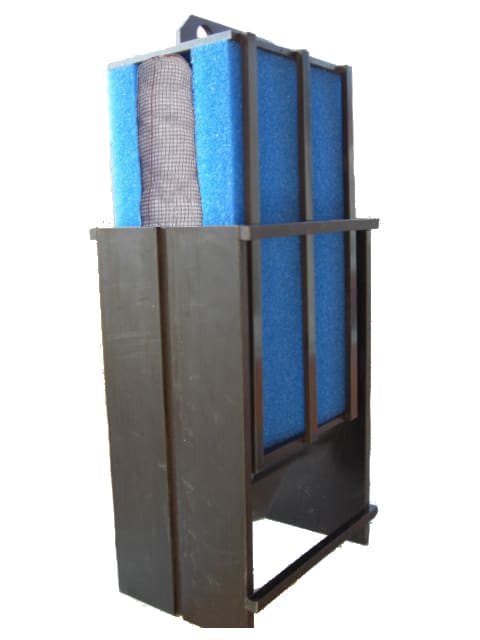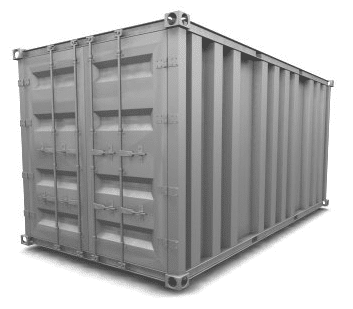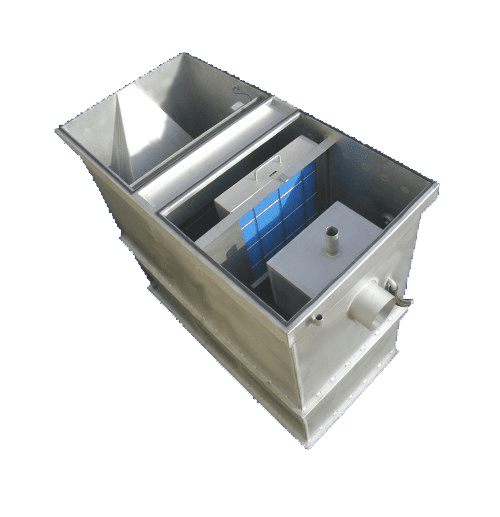Ever wondered how Pennsylvania’s industries handle oily wastewater and follow environmental laws? The answer is in Above Ground Oil Water Separators (OWS). These systems are key to removing oil and grease from water before it’s released.
In Pennsylvania Above Ground OWS are crucial for businesses to meet EPA standards. They’re used in many areas, like petroleum storage and vehicle maintenance. Thanks to advanced tech, some systems can get water so clean it has only 10 PPM of free oil.
Key Takeaways
- Above ground OWS are crucial for industrial wastewater management in Pennsylvania
- These systems help businesses comply with EPA regulations
- OWS remove oil, grease, and light petroleum products from wastewater
- Advanced systems can achieve effluent quality of 10 PPM or less of free oil
- Above ground OWS are used in various industries, including petroleum storage and vehicle maintenance
Understanding Above Ground Oil Water Separators in Pennsylvania
Above ground oil water separators are key in Pennsylvania’s industrial world. They are vital for handling wastewater and keeping the environment safe. Let’s look into their main purpose, the rules they must follow, and why they’re beneficial.
Definition and Purpose of OWS Systems
Oil water separators remove oil, grease, and oily bits from wastewater. They clean the water before it’s let out, helping industries follow environmental laws. In Pennsylvania, these systems are a must for keeping water clean and following state rules.
Regulatory Compliance in Pennsylvania
Pennsylvania has tough rules for wastewater discharge. Companies need NPDES permits and must meet certain water quality standards. Above ground oil water separators help companies meet these standards by treating wastewater properly before it’s released.
Benefits of Above Ground Installation
Installing above ground oil water separators has many perks. They’re simpler to check and maintain, which cuts down on costs over time. They also make it easier to change them if new rules come out. Freytech Inc. in Greensburg, PA, uses an above ground API oil/water separator, showing how useful this setup can be.
Key Features of Pennsylvania Above Ground OWS
Pennsylvania’s above ground oil water separators (OWS) have advanced features that make them stand out in managing wastewater. They are known for their efficiency, flexibility, and long-lasting performance.
Advanced Separation Technology
At the heart of Pennsylvania’s above ground OWS is advanced separation technology. This technology uses new coalescing methods to quickly separate oil and water. This leads to cleaner water with little oil, meeting high environmental standards.
Customizable Designs for Various Industries
OWS designs can be tailored to fit different industrial needs. They come in cylindrical or rectangular shapes, with options for single-wall or double-wall construction. This flexibility lets businesses pick the best option for their space and needs.
Durability and Longevity
Pennsylvania’s above ground OWS are made to endure. They can handle tough industrial settings and harsh weather. With top-quality materials and strong build, they work well for a long time. This means they don’t need to be replaced or repaired often.
Applications and Industries Served by Above Ground OWS
Above ground oil water separators (OWS) are key in treating industrial wastewater in Pennsylvania. They are often found in petroleum storage facilities. These facilities use them to manage stormwater from tank farms and loading areas.
The Buckeye Terminals Greensburg Facility is one example. It uses above ground OWS to treat water from its areas and surfaces.
Vehicle maintenance centers also use these systems. They separate oil and grease from wastewater during maintenance. This helps meet environmental rules.
Aircraft and vehicle fueling stations use OWS for spills and contaminated runoff. This protects nearby water sources.
Environmental remediation sites often use above ground OWS for cleanup. These systems can handle water from different sources like groundwater and soil washing. Pipeline companies use OWS to treat water from hydrostatic testing before disposal.
OWS are very useful in many sectors in Pennsylvania. They help protect the environment and meet regulations.
These separators are crucial in storm water systems. They process runoff to meet the US EPA’s Clean Water Act standards. With effective oily water treatment, facilities protect the environment and dodge big fines.
Freytech Inc.’s Enhanced Coalescing Technology
Freytech Inc. is at the forefront with its advanced coalescing technology for oil water separators. This technology changes how we separate hydrocarbons, setting new standards in wastewater treatment.
Achieving 5 PPM Separation Efficiency
The systems from Freytech Inc. reach an amazing 5 PPM separation efficiency. This is way above the North American discharge limits of 10 PPM. It shows the company’s strong commitment to protecting the environment.
Handling Various Hydrocarbon Types
Freytech’s technology is great at separating many types of hydrocarbons. It can handle motor oil, diesel, gasoline, and jet fuel, removing contaminants from wastewater. This makes it perfect for many industrial uses.
Meeting North American Discharge Limits
Freytech’s separator packages do more than just meet discharge limits. They can get down to an incredible 0.1 PPM separation efficiency for trace amounts of emulsified oil. This top-notch performance helps follow strict environmental laws and supports sustainable water use.
Installation and Maintenance of Above Ground OWS in Pennsylvania
Installing an OWS in Pennsylvania needs careful planning and following state rules. First, look at your site’s needs and get the right permits. Pick a spot that’s easy to get to for upkeep and fits local laws.
Setting up an OWS means putting the separator on a flat, stable ground. Make sure inlet and outlet pipes are connected right, with the flow going the right way. Add safety stuff like alarms for overflows and valves to shut off in emergencies to stop spills.
Keeping an OWS in good shape is key for it to work well. Check the coalescing parts every month and clean out oil and sludge. Watch the quality of the effluent to meet NPDES permit rules. Use absorbent materials and better air diffusers to help the separation work better.
Looking after your wastewater system means cleaning tanks, changing filters, and adjusting sensors. Keep records of maintenance to see how things are doing and spot problems early. By doing this, you’ll make your OWS last longer and follow Pennsylvania’s rules.
Comparing Above Ground and Underground OWS Solutions
Choosing between above ground and underground OWS systems in Pennsylvania involves looking at several factors. Each option has its own benefits, making it important to think about what you need and the situation you’re in.
Cost Considerations
Above ground OWS systems are often more budget-friendly. They’re easier and faster to install, which cuts down on upfront costs. Plus, they’re cheaper to maintain because they’re simpler to get to and keep up with.
Accessibility and Maintenance
One big plus of above ground systems is how easy they are to get to. You can check and fix them without digging, which saves time and money. This makes sure the system works well, lasts longer, and is a smart choice for managing wastewater.
Environmental Impact
For the environment, above ground systems are a better choice in many ways. If there are problems, you can spot and fix them quickly, reducing the chance of harming soil or water. This is key in Pennsylvania, where keeping nature safe is a big deal.
Even with the advantages of above ground systems, underground OWS might be better in places where space is tight or looks matter. The decision between the two should be based on what your facility needs and the rules in your area.
Conclusion: The Future of Wastewater Management in Pennsylvania
Pennsylvania’s wastewater management is changing with new OWS technology. Advanced above ground oil water separators are leading this change. They offer great performance and help industries follow strict environmental laws.
Companies like Freytech Inc. are at the forefront with their innovative designs. Their OWS solutions show how innovation can fight water pollution. This means businesses in Pennsylvania can protect water resources and follow the law.
The move to high-tech OWS systems is a big step for environmental protection in the state. Industries are adopting these tools to improve their green efforts. This trend looks forward to a cleaner, more sustainable future for Pennsylvania’s waterways and ecosystems.


